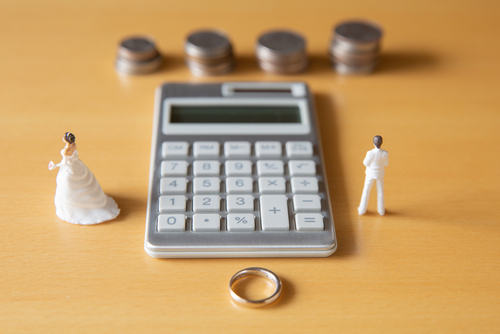HOMENEWS & INSIGHTS
Financial disclosure in Divorce. Who? What? When? How?
In order to agree the financial settlement when you obtain a divorce or dissolution of your financial settlement, you will need to provide details and documents about your financial situation. This is called the duty of financial disclosure.
Throughout the negotiations, and any court case, you will be under an ongoing duty to disclose any changes to your income, capital or any other assets so that there is transparency. This is to ensure any settlement reached is accurate in terms of the true figures.
If it is later found that the figures were inaccurate, or that one person was concealing assets, this could invalidate any settlement reached.
Who must disclose?
The duty of financial disclosure applies to you and your ex-partner, so you both must be transparent and honest about your respective circumstances.
It may also be the case that you have to ask friends and family to help provide information and evidence if they have a connection with your finances. For example, your parents might have loaned you money to fund the purchase of the family home and the terms may be set out in a loan agreement. If there was no formal loan agreement, your parents would have to produce bank statements showing payment to you of the funds.
Therefore, whilst the duty is on you, other people in your life may have to become involved so that you are able to make a full and frank financial disclosure.
What financial information must be disclosed?
Once we understand your circumstances, your solicitor will provide guidance about the details and documents you will need to disclose. The overall objective is to enable you and the court to make informed decisions.
Typically, you will be asked to set out and provide documents to prove:
- your income, whether earned income, self-employment, dividend, bonuses or other benefits;
- the value of savings and investments, with relevant statements;
- property assets, with ownership papers, mortgage statements and valuations;
- business interests, and relevant company accounts and tax submissions; and
- the value of your pension and when you can draw it.
The above list is not exhaustive however, as you could have expensive personal belongings, such as jewellery and artwork, which you will need to disclose.
You will also need to set out your outgoings; how much your pay towards your mortgage or rent, utility bills, any school fees, and other expenses such as magazine or membership subscriptions and charity payments.
Gathering together the supporting documentation can take some time, especially if you need to obtain specialist valuations, so you must factor in timescales and work to a realistic deadline.
When and how?
If you want to try and resolve things outside of court, you will start with a voluntary exchange of financial information. This means you can agree between yourselves, and your legal representatives, when to send each other your documents. Again, you should think about how long it will realistically take to fill out any forms and gather documents, before agreeing an exchange date.
If you have to go to court to resolve a disagreement about the financial settlement, then the court will set a specific date by which financial disclosure is to be exchanged, and you should organise yourself to work towards that.
Either way, it is usual for there to be a simultaneous exchange of information. This can usually be done by email or a secure link, especially given the amount of documents that may be involved.
There are always scenarios where some documentation or figures will be outstanding, for instance when waiting on a pension valuation or figures from an accountant. It is best to exchange as much as possible and indicate that certain things will follow in due course, or they can be provided in the next stage of the process.
The duty of disclosure is ongoing, so if anything about your finances changes after you have sent over your initial pack of information, you should continue to update your ex-partner or their legal representative. Where there is a court case, you will be told by the court to provide updating disclosure before each court hearing, so the court has the most up-to-date information available.
A very important step within the financial disclosure is to analyse your ex-partners financial disclosure to ensure that he/she has complied with the requirement of full disclosure, to raise questions of the disclosure relevant to the finances and identifying anything that is amiss. The financial disclosure is the foundation upon which your will receive legal advice as to the terms of a fair settlement to assist with the negotiations between you and your ex-partner.
How we can help
Whether you have only just started proceedings for your divorce or dissolution of your civil partnership, or if you are ready to agree the financial settlement, we can provide you with the specialist advice required to ensure you get the answers you need and the best deal is secured for you.
For further information, please contact one of our Family Law experts for further advice.
This article is for general information only and does not constitute legal or professional advice. Please note that the law may have changed since this article was published.
Share article
Our offices
Contact Us
5 Poole Road
Bournemouth
Dorset
BH2 5QL
Tel 01202 377800
9 Poole Road
Bournemouth
Dorset
BH2 5QR
01202 377800


